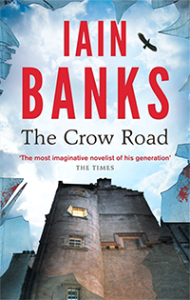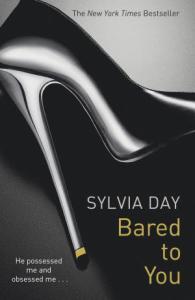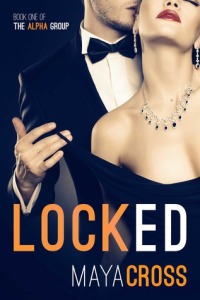A hook is exactly what it sounds like: it is there to snag your reader so that you can reel them into your story. You bait your hook, fling it out into the sea, and wait for a bite. The longer the tale you wish to weave, the more hooks you must litter throughout the story, but these later hooks come naturally with your turning points and pinches.
The first is all on you.
The best hook is a question. The most memorable books open with questions that they do not ask; they force the reader to ask them. Hooked, the reader must continue to read, seeking answers.
 The late and much-missed Iain Banks was a master of hooks. The first line of his novel The Crow Road is simply this:
The late and much-missed Iain Banks was a master of hooks. The first line of his novel The Crow Road is simply this:
It was the day my grandmother exploded.
Who is our narrator? How on earth does his grandmother explode? Why does she explode? Is she alive when it happens? Was this done to her by some external force? Why is the narrator speaking of the event so calmly? What else happened that day that his grandmother exploding is little more than a way of referencing the date?
One sentence is all it takes to create a wealth of questions and drag the reader in. One sentence. Banks could so easily have written:
We were in the crematorium when the extreme heat of the furnace caused grandmother’s pacemaker – still inside her cold body – to explode.
Why would he do that, though, when that beginning contains no hooks? It doesn’t even ask a single question. It gives answers to questions the reader didn’t yet have, and gives no reason to read any further.
If you seek to sell books, then Amazon’s Look Inside feature is one of your tools, and without a hook, it’s as good as useless. Let’s look at some more examples, and this time let’s wander into Romance and Erotica’s best sellers.
 Bared to You by Sylvia Day:
Bared to You by Sylvia Day:
“We should head to a bar and celebrate.”
This is a classic hook. Sylvia Day is a phenomenal writer, and she makes this look so simple, but look closer. She drags you further in with more and more questions before offering a hint of an answer to this one: celebrate what? But by the time you find out what the celebration is for, there are more hooks littered before you.
Fifty Shades of Grey by E. L. James:
I scowl with frustration at myself in the mirror. Damn my hair – it just won’t behave, and damn Katherine Kavanagh for being ill and subjecting me to this ordeal.
Regardless of your outlook on James’ writing style, the fact is that she gets her hook in quickly. Who is Kavanagh? How does her illness subject the narrator to an “ordeal”? Ordeal is a gripping word, and is well-chosen. Had it read “subjecting me to this annoyance”, the reader might not be so inclined to stick with it. But ordeal? Already, within the first line, James is using words which lay down the theme of the entire book.
Driven by K. Bromberg:
I sigh into the welcoming silence, grateful for the chance to escape, even if only momentarily, from the mindsuck of meaningless conversations on the other side of the door.
We don’t even know our narrator’s name yet, but we feel her palpable relief at her brief freedom, because we’ve all been there. We sympathise immediately with her, and want to know why she’s stuck at a social event with people who bore her; why her reprieve is only temporary; who gave her this chance; what she considers meaningful. As Rylee’s narrative continues, her relief – a relief we shared – is punctured, and we are doubly hooked.
 Locked by Maya Cross:
Locked by Maya Cross:
It was nearly one in the morning when I realised that I was about to do something stupid.
What? Why! What are you going to do? Will you get hurt? It’s late! Why are you up so late, and how is it that you’re only just realising that what you’re about to do is stupid? And is it really stupid, or just foolhardy? Embarrassing, perhaps? Tell me more!
The length of your story doesn’t matter, and nor does its complexity. If you cannot hook a reader in with your first paragraph, they will never see the rest of your tale. Whether you are writing Romance or High Fantasy, you need to be able to grab your reader and hold on tight.
Make them ask questions they want the answers to, and they’ll be yours.





Spot on! A good hook is worth its weight in gold.